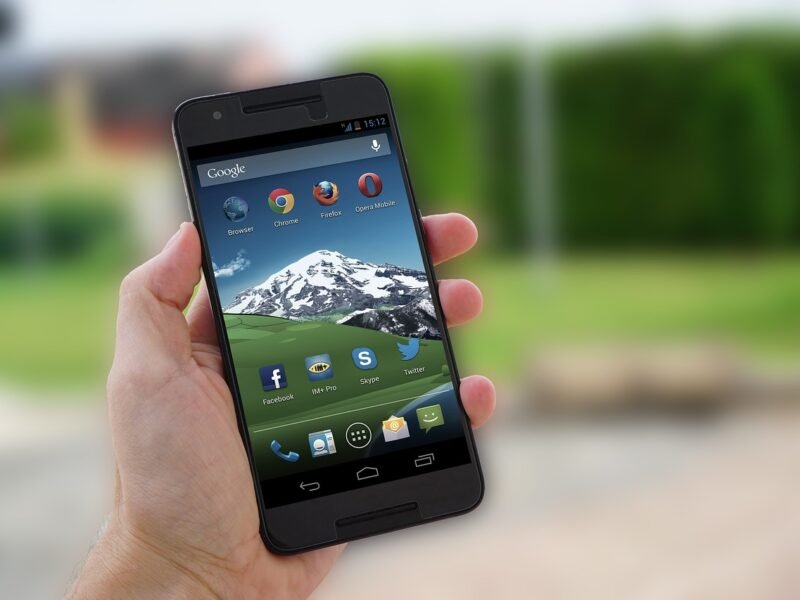As an Android user, you may have noticed that when you search for an app on the Google Play Store, there is a section for “similar apps” that appear in the search results.
These apps are typically related to the app you searched for and can help you discover new apps that you may be interested in. But have you ever wondered how the Google Play Store determines which apps are similar to each other?
In this article, we’ll explore how the Google Play Store determines similar apps and how this can benefit both users and app developers.
What are Similar Apps?
Before we dive into how the Google Play Store determines similar apps, let’s define what we mean by “similar apps.”
Similar apps are apps that share similar features, functions, or characteristics. These apps may be related to each other in terms of their purpose, target audience, or industry.
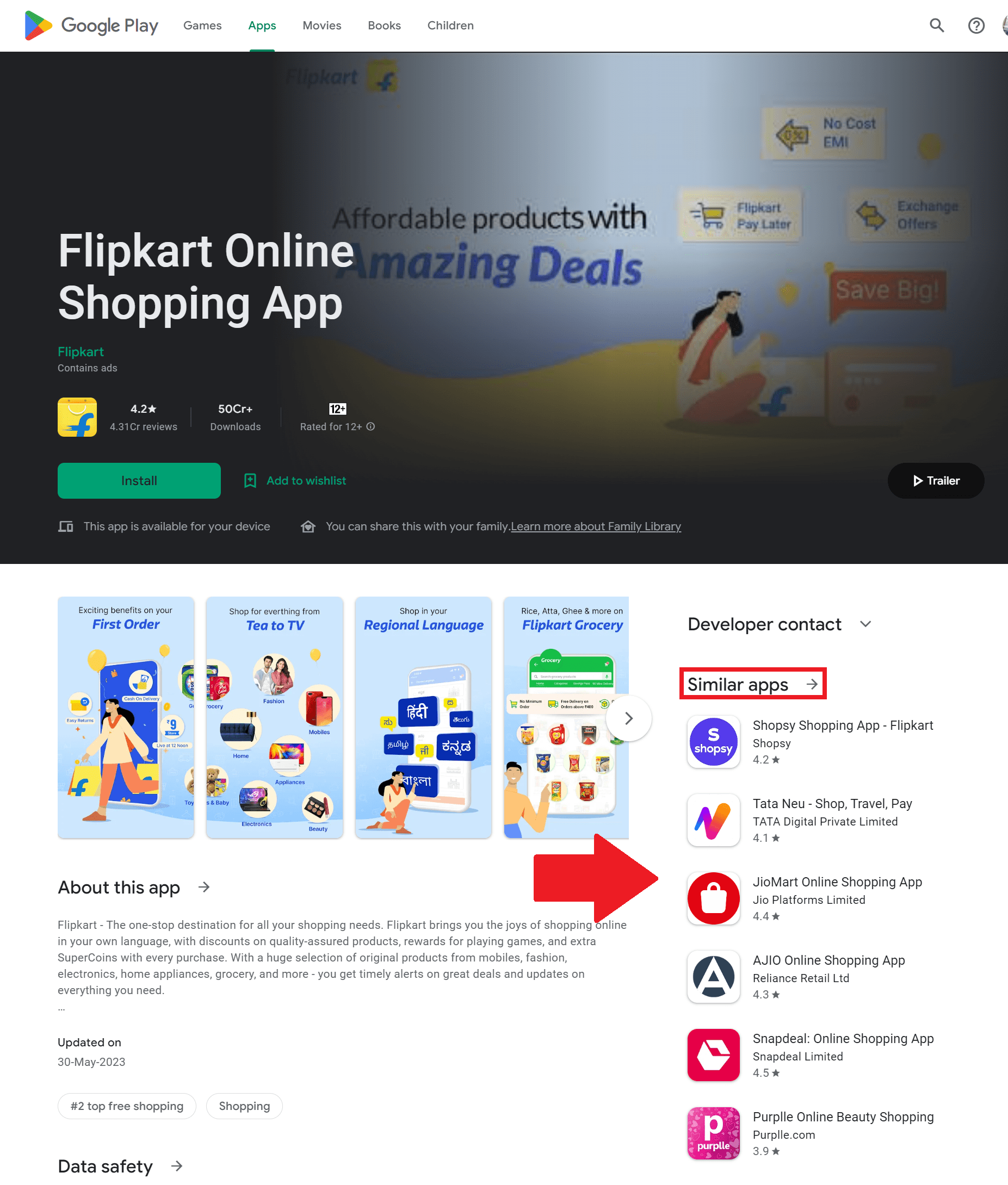
For example, if you search for a photo editing app on the Google Play Store, you may see similar apps that offer similar features such as filters, editing tools, and sharing options.
Read more:-
I Can’t Download or Update The Applications
Rented Movie From the Google Play Store Watched Offline
How Does the Google Play Store Determine Similar Apps?
The Google Play Store uses a variety of algorithms and data to determine similar apps. These algorithms analyze app data such as app descriptions, user reviews, and app categorization to identify apps that are similar to each other.
Here are some of the key factors that the Google Play Store considers when determining similar apps:
1. App Descriptions
One of the most important factors that the Google Play Store considers when determining similar apps is the app descriptions.
App descriptions are the text that developers use to describe their apps to users. The Google Play Store analyses this text to identify keywords and phrases that are related to the app’s function, features, and target audience.

For example, if you search for a weather app on the Google Play Store, the app descriptions of similar apps may contain keywords such as “weather forecast,” “current temperature,” “radar maps,” and “local weather alerts.”
The Google Play Store uses these keywords to determine which apps are most similar to the one you searched for.
2. User Reviews
Another important factor that the Google Play Store considers when determining similar apps is user reviews.
User reviews are feedback from users who have downloaded and used the app. The Google Play Store analyses user reviews to identify common themes and issues that users have experienced with the app.
For example, if users of a photo editing app complain about the app’s slow performance, the Google Play Store may identify other photo editing apps that have received positive reviews for their speed and performance.
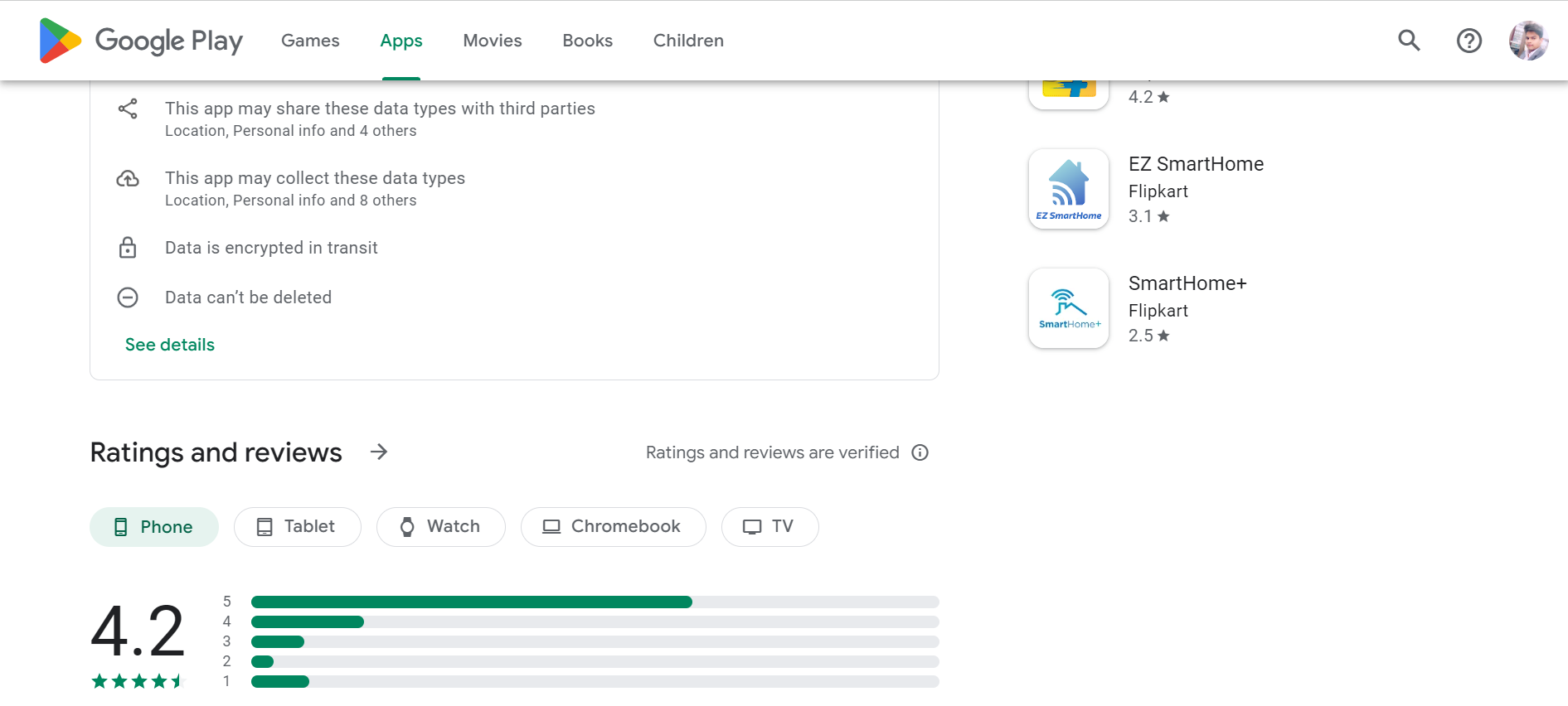
This helps the Google Play Store to recommend apps that are more likely to meet the user’s needs and expectations.
3. App Categorization
The Google Play Store also uses app categorization to determine similar apps.
App categorization is the process of assigning apps to specific categories based on their function, features, and target audience.
The Google Play Store analyses the category of the app you searched for and recommends apps that are in the same or similar categories.
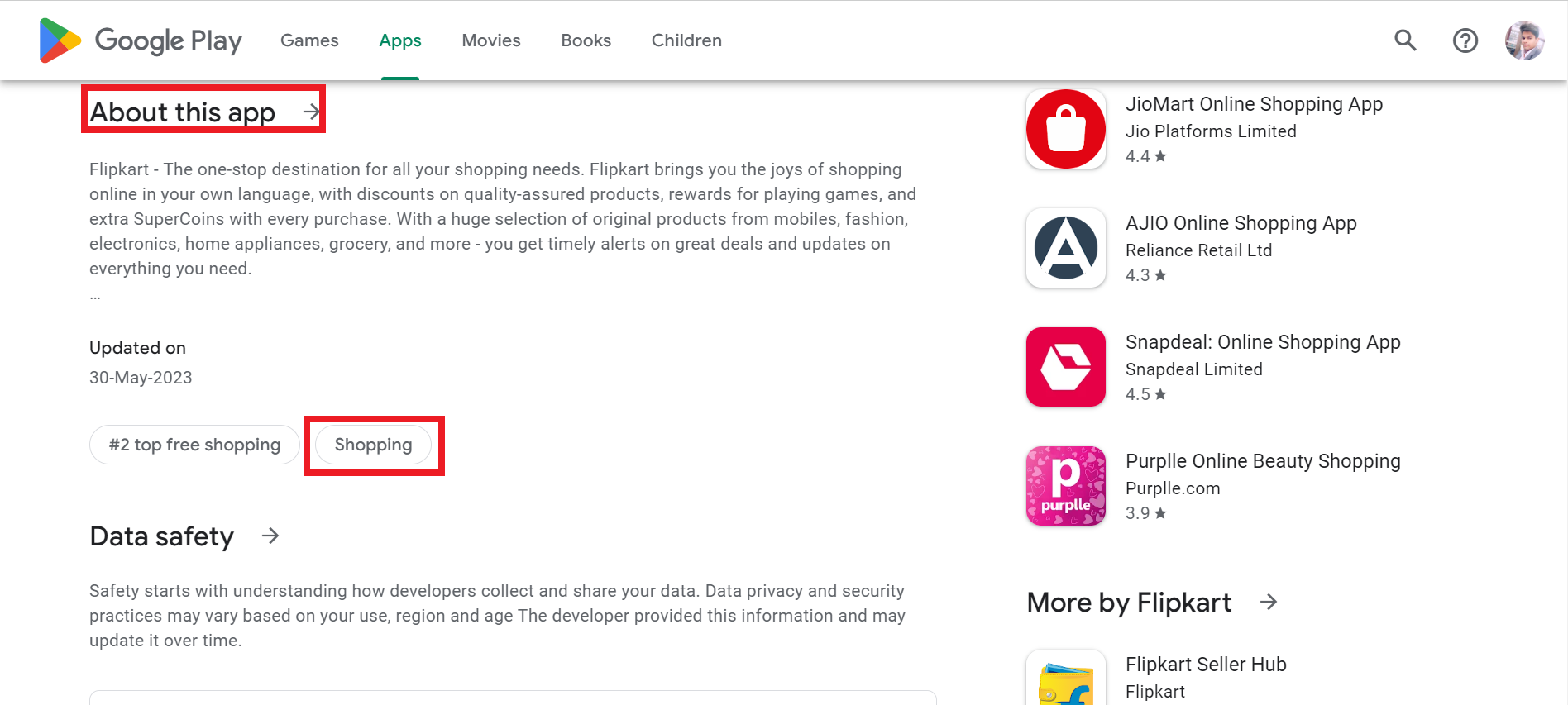
For example, if you search for a fitness app, the Google Play Store may recommend other apps that are categorized as health and fitness apps.
This helps users to discover related apps that are likely to be of interest to them.
4. App Usage Data
In addition to app descriptions, user reviews, and app categorization, the Google Play Store also considers app usage data when determining similar apps.
App usage data is information about how users interact with the app, such as how often they use the app, how long they use it, and what features they use the most.
The Google Play Store uses this data to identify apps that are similar to the one you searched for in terms of usage patterns.
For example, if you search for a music streaming app and tend to listen to a lot of indie music, the Google Play Store may recommend other music streaming apps that have a similar selection of indie music.
Sure, here are some additional details on how the Google Play Store determines similar apps:
5. App Metadata
In addition to app descriptions, user reviews, and app categorization, the Google Play Store also considers app metadata when determining similar apps.
App metadata includes information such as the app’s package name, version number, and developer information.
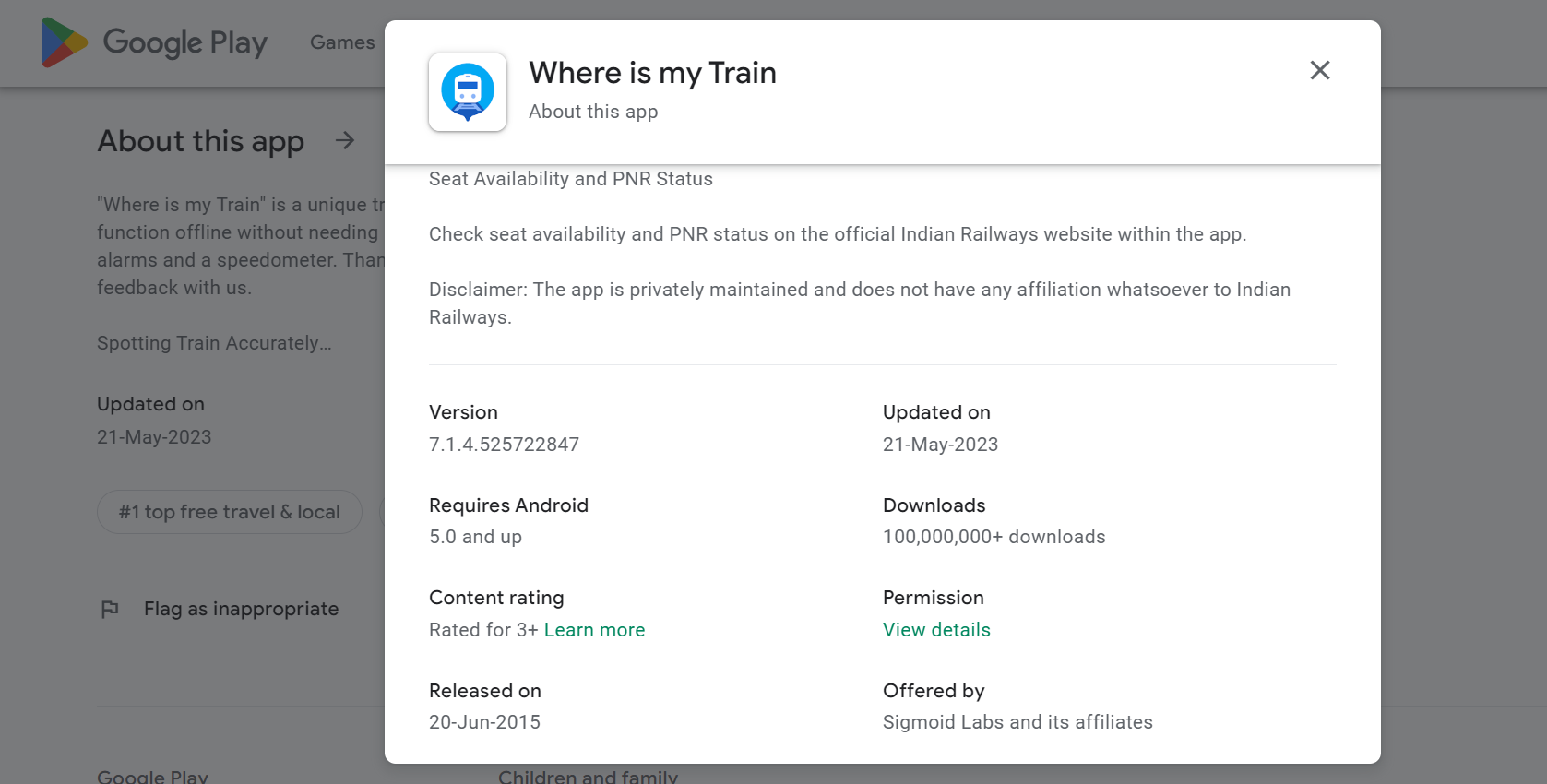
The Google Play Store uses this data to identify apps that are developed by the same developer or have similar package names or version numbers.
For example, if you search for a game developed by a particular developer, the Google Play Store may recommend other games developed by the same developer or games that have a similar package name or version number.
Read more:-
Android Applications Banned On Play Store
Android Developer Earn From The Google Play Store
6. Localization
The Google Play Store also takes into account localization when determining similar apps. Localization refers to the process of adapting an app to different languages, cultures, and regions.
The Google Play Store analyzes the localization of the app you searched for and recommends similar apps that are also localized for the same language, culture, or region.
For example, if you search for a language learning app that is localized for Spanish speakers, the Google Play Store may recommend other language learning apps that are also localized for Spanish speakers.
7. Machine Learning
Finally, the Google Play Store also uses machine learning algorithms to determine similar apps.
Machine learning is a type of artificial intelligence that allows computers to learn from data and make predictions or decisions based on that data.
The Google Play Store uses machine learning to analyze large amounts of data and identify patterns and trends that may not be immediately apparent to humans.
For example, machine learning algorithms can analyze user behavior and identify apps that are frequently downloaded together or used in combination.
This can help the Google Play Store to recommend apps that are likely to be used together or complement each other.
Machine learning algorithms can also analyze user demographics such as age, gender, and location to identify apps that are popular among certain groups of users.
This can help the Google Play Store to recommend apps that are more likely to be of interest to specific users based on their demographics.
Overall, the Google Play Store uses a combination of algorithms and data to determine similar apps.
By analyzing app descriptions, user reviews, app categorization, app usage data, app metadata, localization, and machine learning, the Google Play Store can recommend apps that are most likely to be of interest to users based on their search queries.
This benefits both users and app developers by making it easier for users to discover new apps and increasing visibility and downloads for app developers.
Benefits of Similar Apps for Users and App Developers
The ability of the Google Play Store to determine similar apps has benefits for both users and app developers.
For users, similar apps can help them discover new apps that are related to the ones they already use or are interested in.
This can save time and effort in searching for apps that meet their needs and preferences.
For app developers, being recommended as a similar app can increase the visibility and downloads of their app.
If their app is recommended as a similar app to a popular and well-reviewed app, it can lead to increased exposure and downloads.
This can be especially beneficial for smaller app developers who may not have the marketing budget to promote their apps in other ways.
Additionally, the ability of the Google Play Store to determine similar apps can help app developers identify their competition and make improvements to their apps to stand out from the crowd.
By analyzing what makes their app different from similar apps, app developers can make changes to their app to improve its unique value proposition and better meet the needs of their target audience.
Read more:-
Check The Exact Number of App Installs – Play Store
Download APK Files from the Play Store Programmatically
Conclusion
In conclusion, the Google Play Store determines similar apps by analyzing a variety of data such as app descriptions, user reviews, app categorization, and app usage data.
By using these algorithms, the Google Play Store can recommend apps that are most likely to be of interest to users based on their search queries.
This benefits both users and app developers by making it easier for users to discover new apps and increasing visibility and downloads for app developers.
As an app developer, it’s important to consider how your app is categorized and described in the Google Play Store to ensure that it is being recommended to the right users as a similar app.
By paying attention to user feedback and usage data, you can make improvements to your app to stand out from the competition and meet the needs of your target audience.
As a user, taking advantage of similar app recommendations can help you discover new apps and save time and effort in searching for apps that meet your needs and preferences.


